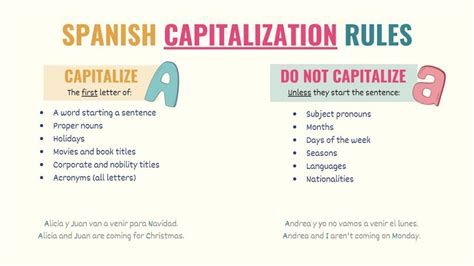Are you considering learning Spanish? If so, you’re not alone. Spanish is the second most spoken language in the world, with over 500 million native speakers. It’s also the official language of 20 countries, including Spain, Mexico, and Argentina.

There are many reasons why you might want to learn Spanish. Perhaps you’re planning a trip to a Spanish-speaking country, or you have friends or family who speak Spanish. Maybe you’re interested in learning about Hispanic culture, or you want to advance your career.
Whatever your reasons, learning Spanish can be a rewarding experience. It can open up new opportunities for travel, communication, and cultural understanding.
But before you start learning Spanish, it’s important to ask yourself: “Should I?” Here are a few things to consider:
- Your goals. What do you want to achieve by learning Spanish? Do you want to be able to communicate with Spanish-speaking friends and family? Do you want to travel to Spanish-speaking countries? Or do you want to advance your career? Your goals will help you determine the best way to learn Spanish.
- Your learning style. How do you best learn new things? Do you prefer to learn in a classroom setting, or do you prefer to learn on your own? There are many different ways to learn Spanish, so find one that fits your learning style.
- Your time commitment. How much time are you willing to commit to learning Spanish? Learning a new language takes time and effort, so it’s important to be realistic about your time commitment.
If you’re still not sure whether or not you should learn Spanish, here are a few more things to consider:
- Spanish is a relatively easy language to learn. Compared to other languages, such as Chinese or Arabic, Spanish is relatively easy to learn. This is because Spanish has a relatively simple grammar system and a large number of cognates with English.
- Spanish is a valuable asset. Knowing Spanish can open up new opportunities for travel, communication, and cultural understanding. It can also be a valuable asset in your career.
- Learning Spanish can be fun! Learning a new language can be a challenging but rewarding experience. It can also be a lot of fun!
If you’re ready to start learning Spanish, there are many resources available to help you. You can take classes at a local community college or university, or you can learn online. There are also many books, websites, and apps that can help you learn Spanish.
No matter how you choose to learn Spanish, the most important thing is to be consistent. The more you practice, the faster you will learn. So, if you’re serious about learning Spanish, make a commitment to yourself to practice regularly.
The Benefits of Learning Spanish
There are many benefits to learning Spanish, including:
- Increased job opportunities. Knowing Spanish can open up new job opportunities in a variety of fields, including business, healthcare, and education.
- Improved travel experiences. Knowing Spanish can make travel to Spanish-speaking countries more enjoyable and rewarding. You’ll be able to communicate with locals, learn about the culture, and experience the country in a more authentic way.
- Enhanced cultural understanding. Learning Spanish can help you better understand Hispanic culture. You’ll be able to read Spanish literature, watch Spanish films, and listen to Spanish music.
- Improved cognitive skills. Learning a new language can improve your cognitive skills, such as memory, attention, and problem-solving.
How to Learn Spanish
There are many different ways to learn Spanish. The best way for you to learn will depend on your individual learning style and goals. Here are a few tips to help you get started:
- Start with the basics. Before you start learning Spanish, it’s important to understand the basics of the language, such as the alphabet, pronunciation, and grammar.
- Practice regularly. The more you practice, the faster you will learn. Try to practice speaking, listening, reading, and writing Spanish every day.
- Immerse yourself in the language. The best way to learn a language is to immerse yourself in it. Try to watch Spanish films, listen to Spanish music, and read Spanish literature.
- Find a language partner. One of the best ways to learn Spanish is to find a language partner. You can practice speaking and listening to Spanish with your language partner, and they can help you with your pronunciation and grammar.
Conclusion
Learning Spanish can be a rewarding experience. It can open up new opportunities for travel, communication, and cultural understanding. If you’re considering learning Spanish, I encourage you to give it a try. You may be surprised at how much you enjoy it!
Here are some additional tips to help you decide if you should learn Spanish:
- Consider your interests. If you’re interested in Hispanic culture, travel, or business, then learning Spanish could be a great fit for you.
- Think about your career goals. If you’re looking to advance your career in a field that requires Spanish language skills, then learning Spanish could be a valuable asset.
- Talk to people who speak Spanish. Ask them about their experiences learning Spanish and why they recommend it.
- Try a Spanish language class. This is a great way to get started learning Spanish and to see if it’s a good fit for you.
Remember, the best way to learn Spanish is to practice regularly. Immerse yourself in the language as much as possible. Find a language partner or take a class. The more you practice, the faster you will learn. So, what are you waiting for? Start learning Spanish today!
